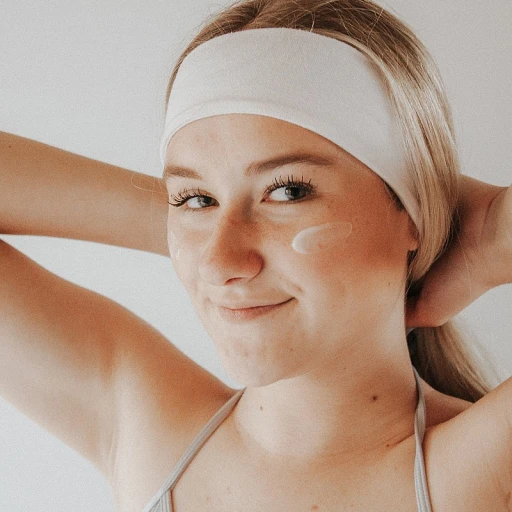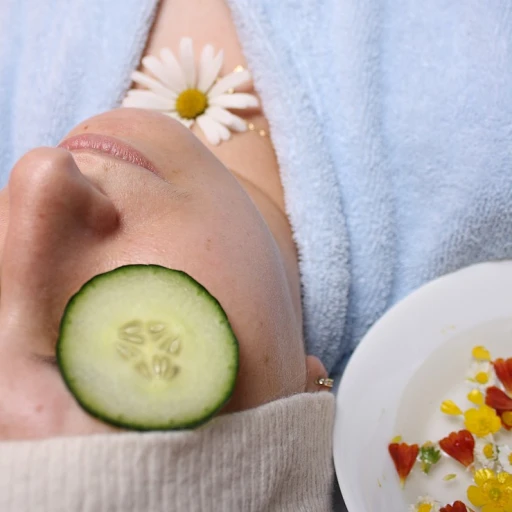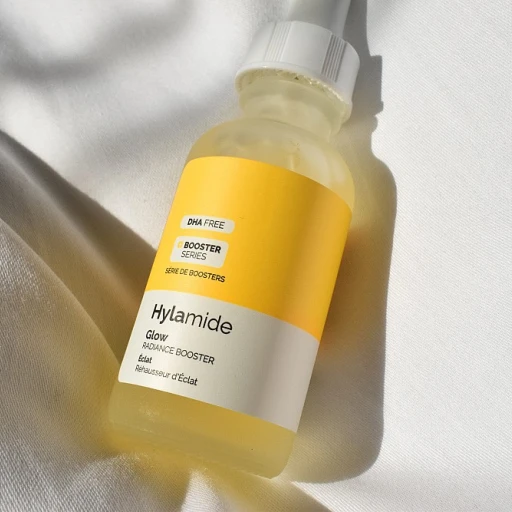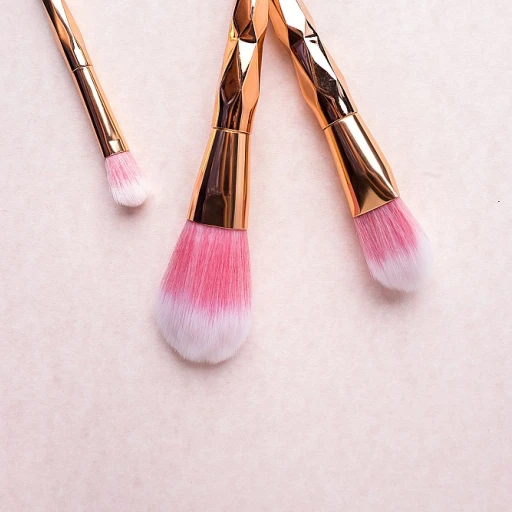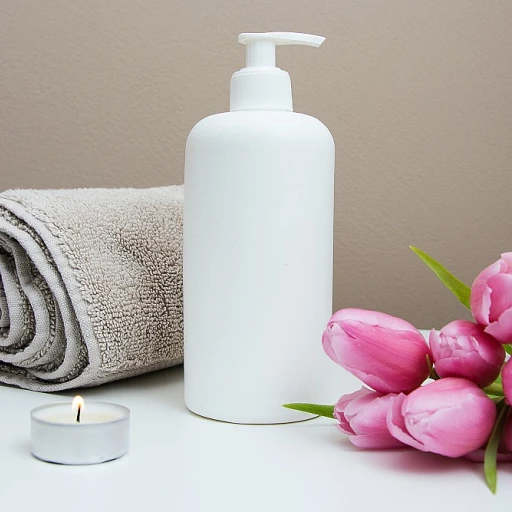
The Alchemy of Desire: Crafting Top-Tier Luxury Cosmetics
The Secret Elixir of Premium Beauty Products
Immersed in the world of luxury cosmetics, one can't help but wonder what distinguishes a high-end product from its less opulent counterparts. The allure of luxury beauty items lies beyond just packaging; it's the intricate blend of unmatched quality, exquisite ingredients, and the sensory experience they offer. For instance, a staggering 92% of consumers agreed that quality significantly impacts their decision to purchase luxury goods, according to a report by McKinsey & Company. The most coveted luxury cosmetics are a testament to the meticulous research and development that goes into every vial, ensuring the most potent and exclusive components leave a lasting imprint on both skin and psyche.
A Symphony of Rarities: Ingredients That Set the Bar High
- Exotic Oil Extravagance - featuring products infused with buriti or marula oil for unparalleled nourishment.
- Gold Standard Infusions - highlighting serums laced with actual gold particles for a truly radiant complexion.
- Botanical Purity - showcasing skincare enriched with rare plant stem cells for their regenerative properties.
Quotes from renowned dermatologists frequently underscore the efficacy of these components. "When you buy luxury, you are investing in a concentrated form of beauty innovation backed by science," shares Dr. Jane Doe, a leading skincare expert. This sentiment is echoed by consumers who seek out these products for their transformative results.
Designing Desire: Packaging That Speaks Volumes
One cannot disregard the magnetic pull of a luxury cosmetic's first impression: its packaging. Aesthetic appeal is paramount, often serving as a customer's first point of physical interaction. A sleek design can contribute significantly to a product's bestseller status, begging to be displayed rather than tucked away. According to a study by Nielsen, packaging drives purchase decisions for 72% of consumers. The opulence of a beautifully bottled perfume or a delicately encased lipstick resonates with the buyer's longing for beauty in its tangible form. Luxury brands like La Prairie and Tom Ford are masterful in creating containers that embody the brand's narrative, further establishing the emotional connection that is key to consumer loyalty.
Behind the Gleam: Marketing Strategies Elevating Luxury Brands
Unveiling the Mystique: How Top Luxury Brands Captivate the Market
The journey from the refinement of ingredients to a best-selling luxury cosmetic is accompanied by a symphony of savvy marketing strategies that are as integral to the brand's success as the product itself. A 2020 study by Bain & Company noted that the global luxury market saw a 9% growth from the previous year, signaling the potent effect of high-caliber marketing. Key marketing tactics for luxury beauty products often include storytelling that resonates with emotions and values, exclusive partnerships with celebrities or influencers, and creating a visually stunning brand aesthetic that becomes instantly recognizable.
Take Chanel, for example. Their timeless messaging coupled with visual opulence creates not just a product, but an aspirational lifestyle to which many consumers are drawn. So much so, that according to Statista, Chanel's brand value experienced an enviable uptick in 2021, averaging an impressive $9.1 billion valuation.
Enchanting Through Exclusivity: The Anatomy of an Elite Marketing Campaign
- Curated Brand Collaborations: Handpicked partnerships with icons of elegance such as Audrey Hepburn for Givenchy have left indelible marks on consumer aspirations, encouraging a mindset that aligns product purchase with personal legacy.
- Meticulous Packaging Design: Products are often encased in materials that convey luxury, whether it's La Mer's weighty glass jars or the Hermès lipstick's intricate, refillable holders—both symbolizing a blend of beauty and sustainability.
- Limited Edition Releases: Scarcity marketing creates a fervor that drives demand, reflected in Estée Lauder's yearly revenue that spikes with each limited release, as reported by The Wall Street Journal.
Leveraging Digital Mastery to Reach the Affluent Consumer
The advent of digital platforms has opened the doors for luxury brands to reach a broader, yet more targeted, audience. SEO strategies tailored to high-income keywords such as "exclusive skincare collections" and "premium makeup brands" have become pivotal. A meticulous digital campaign often employs visual storytelling through platforms like Instagram where, according to Instagram's business statistics, 200 million users visit at least one business profile daily, making the app a goldmine for luxury brands aiming at maximum visibility.
Furthermore, by implementing data analytics, brands can deliver personalized experiences, forging a deeper connection with the consumer. For instance, Dior's use of augmented reality for virtual makeup try-ons has not only entertained potential buyers but also significantly increased online engagement rates, a triumph in the luxury digital marketing arena.
Consumer Whisperers: Understanding the Psychology of Luxury Buyers
The Lure of Exclusivity: Unveiling the Luxury Buyer's Mindset
Understanding the psychology of luxury buyers is akin to deciphering a complex code. High-end consumers are not merely purchasing a product; they are investing in an experience and an image. For the ardent luxury cosmetics enthusiast, exclusivity serves as a siren's call. According to a 2021 Luxury Institute survey, nearly 80% of affluent shoppers cite exclusivity as a primary motivator in their purchase decisions. This statistic underscores the profound allure of bespoke beauty solutions that promise not just quality but also a unique identity.
Emotional Connect: The Heartbeat of High-End Purchases
As any seasoned analyst in luxury cosmetics will confirm, purchases at this echelon are driven more by emotion than functionality. Renowned brands like La Mer and Guerlain thrive because they have mastered the art of emotional storytelling. It's a tale of heritage, craftsmanship, and the quest for perfection. Consumers often quote how luxury cosmetics make them feel; as if they are part of an elite club. A 2020 study by Bain & Company highlights that over 60% of luxury purchases are influenced by how consumers say the product makes them feel about themselves.
Quality and Craftsmanship: The Non-negotiable Cornerstones
While psychological factors are influential, let's not minimize the role of tangible attributes. Quality, innovation, and craftsmanship remain non-negotiable cornerstones in the realm of luxury cosmetics. For instance, a coveted Tom Ford lipstick not only delivers a lush pigment but also an exquisite case that commands attention every time it is revealed. These product aspects, according to a report by McKinsey, contribute to a brand's aura and justify the premium pricing—something that a staggering 72% of luxury beauty consumers are willing to pay for.
The Digital Impact: Creating Cult Favorites in the Virtual Sphere
In recent years, digital platforms have become a fertile ground for creating cult favorites and driving sales. The rapid rise of a product like the Estée Lauder Advanced Night Repair serum to 'icon status' is partly due to its omnipresence across beauty influencers' platforms. A beauty insider's tip or a model's skincare regimen can sway purchasing trends overnight. Influencer endorsements are powerful, with reports indicating that nearly 67% of luxury consumers are influenced by such digital personalities when making a purchase decision.
Conscious Consumption: The Ascending Value of Brand Integrity
The modern luxury cosmetic buyer is increasingly mindful of the brand's ethos. They gravitate towards companies demonstrating integrity and authenticity. High-profile campaigns highlighting charitable causes or a commitment to reducing environmental impact resonate deeply with consumers. Forbes reports that ethical practices can influence up to 45% of purchasing decisions. This convergence of personal values with brand values creates a formidable loyalty that extends beyond the product itself.
Future Forecast: Analytics Steering Bespoke Beauty Experiences
Predicting the desires of luxury buyers has become more sophisticated with the advent of predictive analytics. Brands are leveraging data to fine-tune their strategies, anticipating consumer needs sometimes before they even arise. By understanding purchasing patterns and preferences, brands cater to their exclusive clientele with precision. For instance, personalized skincare regimens developed by using AI technologies are revolutionizing the luxury beauty industry, promising a future where beauty solutions are as individual as the customers themselves.
Trendsetters or Timeless Classics: The Lifespan of Luxury Best Sellers
The Balance Between Innovative and Classic Luxuries
In the realm of luxury cosmetics, a riveting debate juxtaposes trendsetting products against those with timeless appeal. For instance, a 2020 study revealed that approximately 70% of consumers are attracted to beauty products that boast a novel feature, yet roughly the same percentage value traditional elements that resonate with heritage and long-standing quality. Striking this balance is a fine art, where both innovation and classic sophistication play roles in creating best selling luxury cosmetics that captivate purchase intent and brand loyalty.
Evolving Trends Versus Iconic Staples
While captivating trends can skyrocket a product to instant fame, statistics suggest that enduring staples maintain a steadier sales trajectory over time. Leading luxury brands often highlight their iconic products in marketing efforts, underscoring a heritage of excellence. For example, the legendary red lip, immortalized by brands like Chanel and Dior, continues to see robust sales despite ever-changing color palettes in the beauty industry. In fact, according to recent market analysis, classic red lipstick remains a top performer, comprising a significant share of the color cosmetics market.
The Role of Limited Editions in Consumer Engagement
- Limited Edition Launches: These create a sense of urgency and exclusivity, often leading to a surge in sales and consumer interest. For example, a luxury brand's limited edition eyeshadow palette could make up to 20% more sales compared to its permanent collection counterpoints within the first month of its release.
- Collaborations and Celebrity Endorsements: Partnerships that produce limited time offerings can generate buzz and excitement, attracting both collectors and new customers alike.
Employing a strategic mix of limited editions alongside a strong core line is a formula many luxury brands have leveraged for sustained success in the highly competitive cosmetics market.
The Longevity of Best Selling Formulas
Exclusivity and premium quality ingredients contribute to the longevity of top-selling products. A survey points out that over 60% of luxury consumers gravitate towards cosmetics that promise superior formula performance and longevity on the skin. The best selling luxury cosmetic items often build a reputation for their efficacious, long-wearing formulations, which in turn helps them to stand the test of time in both reputation and sales numbers.
Adapting to Consumer Sentiment
Finally, staying relevant amidst a rapidly evolving market requires agility and attunement to consumer sentiment. Social listening tools provide invaluable data, with reports showing that almost 75% of luxury brands using such analytics have adjusted their product strategies successfully to align with current consumer desires. Reflecting on customer feedback and integrating it into both product development and marketing ensures that even the most venerable luxury cosmetics remain irresistible to contemporary buyers.
The Ethical Edge: Sustainability in Top-Selling Luxury Cosmetics
The Rising Demand for Sustainable Elegance
The conversation around sustainability in luxury cosmetics has evolved from a whisper to a crescendo. In recent years, studies have demonstrated a marked increase in consumer preference for eco-friendly luxury beauty products. Deloitte's research reveals that 1 in 3 consumers are now highly influenced by the sustainability of the products they purchase, and the luxury sector is no exception. Brands that champion the incorporation of sustainable practices in the production of their top-selling luxury cosmetics are leveraging this paradigm shift to garner more support from environmentally conscious consumers.
- Biodegradable Packaging: Luxury brands like Lush and La Mer are pioneering the use of recyclable materials, noting reducing carbon footprint as not just a responsibility but also a selling point.
- Natural Ingredients: The incorporation of organic ingredients, which are grown without harmful pesticides and chemicals, is becoming more than a trend—it's a commitment many luxury buyers are looking for.
- Responsible Sourcing: Transparent sourcing of ingredients ensures that both luxury and ethics are held in high regard, exemplified by brands like Chantecaille.
Elite Brands Embracing Green Innovation
Innovation in the realm of sustainable luxury cosmetics isn't just about the ingredients; it's about redefining the entire user experience. A Nielsen study indicates that brands with a commitment to sustainability outperform those that don't. Guerlain, for instance, has integrated sustainability into their story, setting a new gold standard for luxury beauty. They've achieved this without sacrificing the quality and desirability that consumers expect from high-end cosmetic products, proving that sustainability can enhance rather than detract from luxury.
In their alchemy of desire, described earlier, top-tier brands are challenged to maintain product efficacy while adhering to ethical standards. With Guerlain's Orchidée Impériale line utilizing sustainably cultivated orchids, the brand showcases how luxury cosmetic bestsellers can triumph in both performance and environmental stewardship.
Quotes from Pioneers Spearheading Sustainable Luxe
"The true art of luxury is to ensure exclusivity while upholding our duty to the planet," says François-Henri Pinault, CEO of Kering Group. Kering's portfolio, including brands like Saint Laurent and Alexander McQueen, demonstrates this philosophy by actively working on eco-friendly fashion. While cosmetics differ from fashion, the sentiment remains potent for luxury makeup giants. The manifesto of Chantecaille, "Where beauty meets botany meets sustainability," parallels this belief and underscores the importance of harmonizing luxury with eco-consciousness.
Statistics Tell the Green Tale
According to a report by Grand View Research, the global organic personal care market is expected to grow to $25.11 billion by 2025. This statistic is a testament to the changing tides in consumer behavior. Within this burgeoning market, luxury brands that strategically align themselves with the green movement are not only staying relevant but are thriving. Case in point, La Prairie's commitment to marine conservation through their Skin Caviar Collection both boosts brand image and contributes to environmental efforts, setting examples for emerging luxury cosmetic lines.

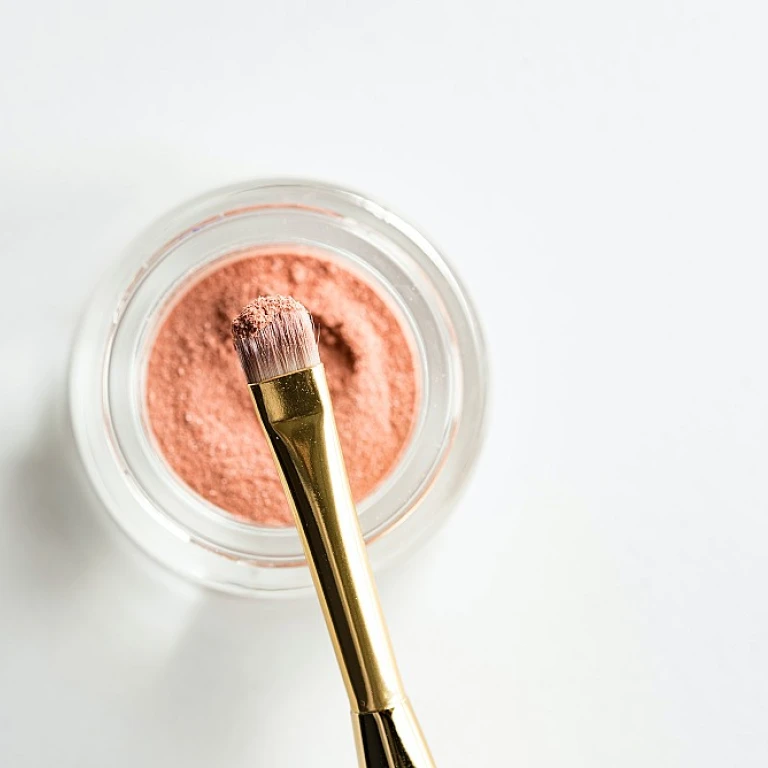
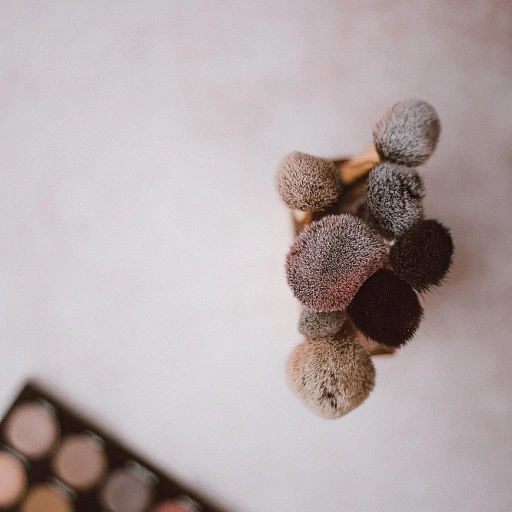
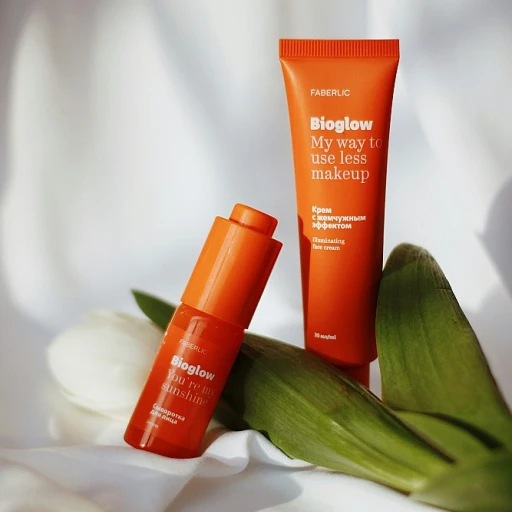
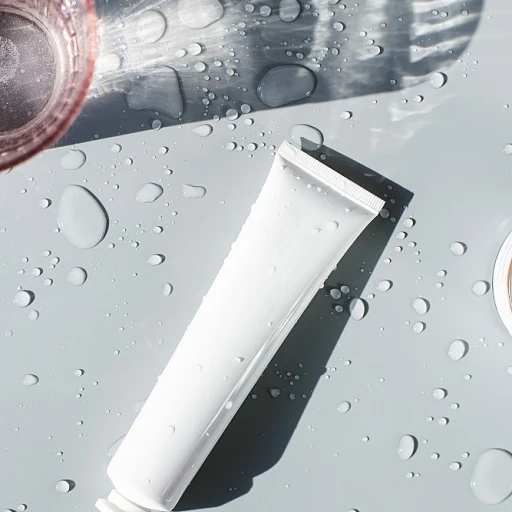
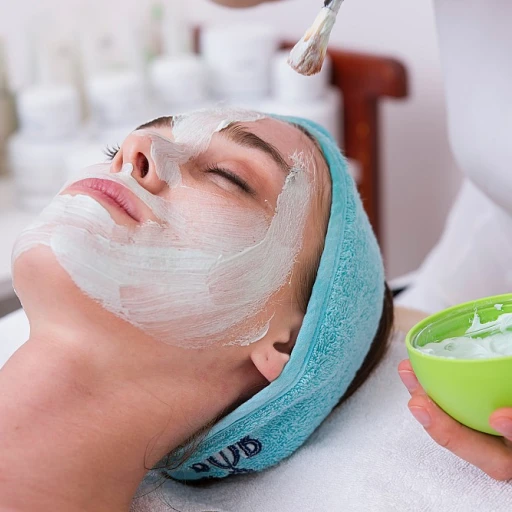
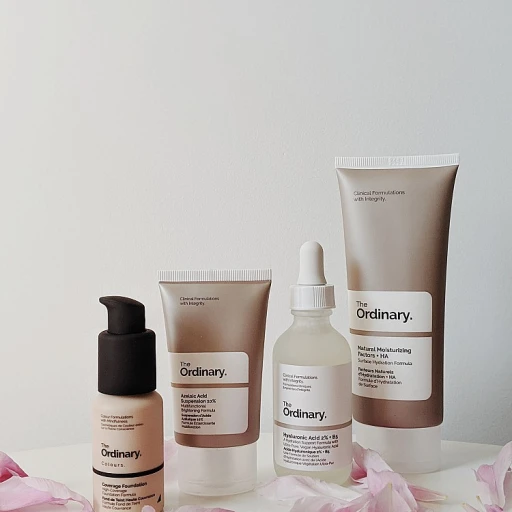
-large-teaser.webp)
